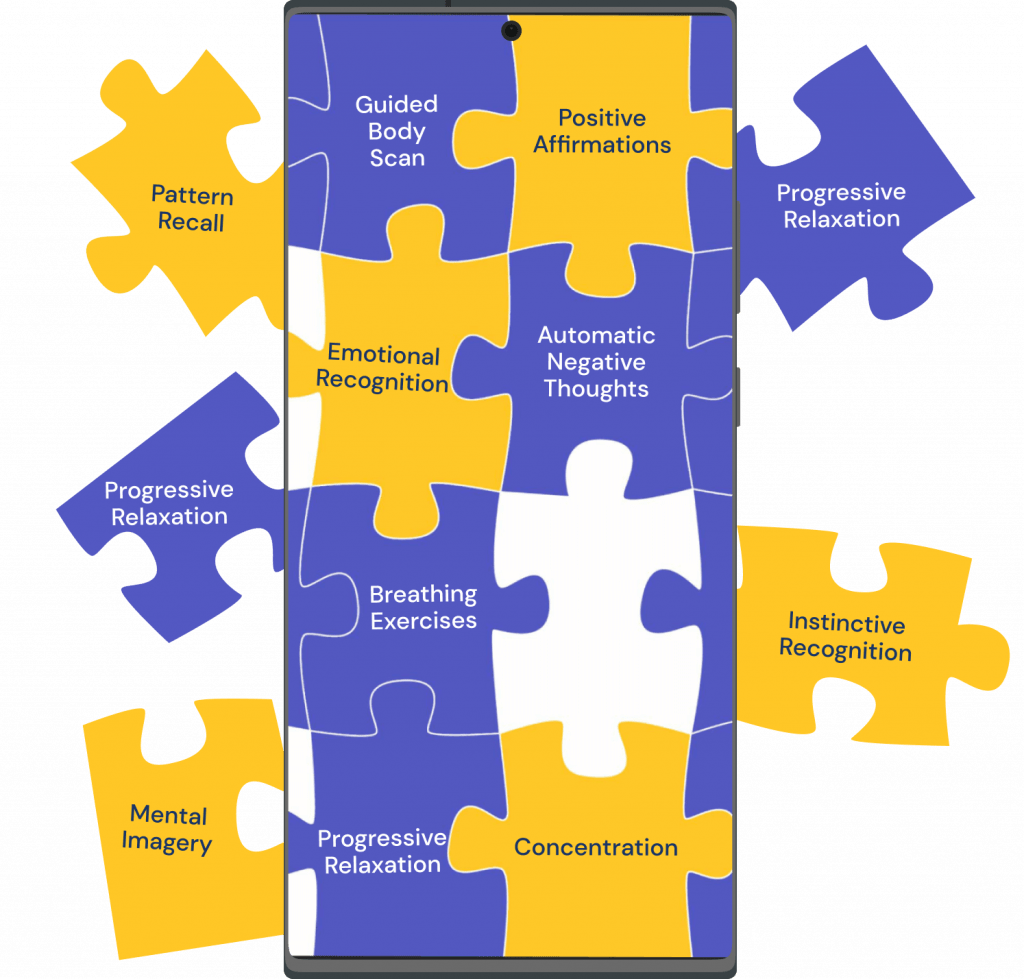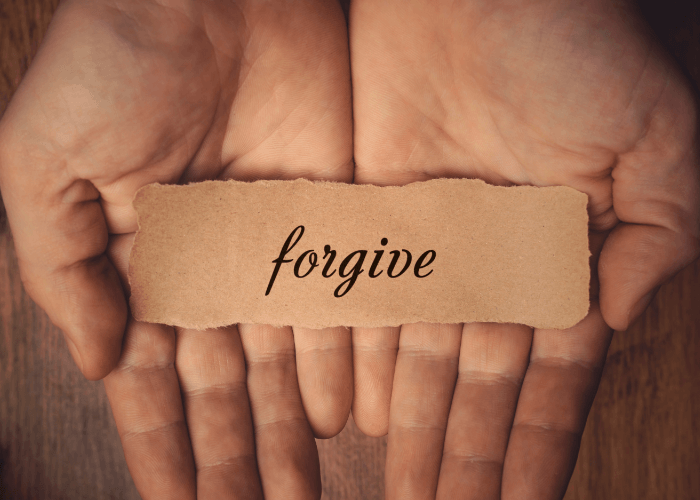How To Stop Feeling Guilty?
Guilt is an unsettling emotion that we all have experienced at some point in our lives. It is a feeling of remorse, regret, or self-reproach that arises when we believe we have done something wrong. Or else – that we have failed to do something we should have done.
Guilt can indeed serve as a valuable motivator to rethink our behavior and make amends. Anyway, excessive or prolonged guilt can be damaging to our mental health and overall well-being.
In the paragraphs below, we will look deeper into the nature of guilt and its unfavorable effects, as well as examine some real-life tips to overcome toxic guilt and move on.
Understanding Guilt: What Is It, and Why Do We Experience It?
Guilt is a complicated emotion that can emerge from different situations and circumstances. It is often associated with morality and ethical behavior and is experienced when we believe we have violated an important principle.
Put simply – it’s the subjective feeling that we’ve deviated from our moral compass. Yet, this doesn’t necessarily need to be the objective truth about the situation.
Guilt can be triggered by a wide range of behaviors or actions, such as lying, cheating, stealing, breaking promises, or hurting others. In these cases, we have an objectively true belief that we’ve messed up.
Anyway, guilt can also be coupled with feelings of inadequacy, self-doubt, or shame. In these cases, we might find ourselves struggling with remorse that we did not deserve in any way.
Types of Guilt and Why Do You Feel It
As we already hinted above, guilt can take many different forms, depending on the circumstances and individual backgrounds. However, some of the most common types of guilt are, but are not limited to, the following:
- Natural guilt emerges when we have broken our personal moral code or values. It is a healthy form of regret that can encourage us to reevaluate our behavior and make amends.
- Collective guilt occurs when we belong to a group or community that has done something wrong or harmful to others. It is frequently associated with historical events or social injustices.
- Chronic guilt is a persistent feeling of remorse or self-blame that can be more challenging to overcome. It may be linked to childhood experiences, trauma, or a deep-seated belief that one is fundamentally flawed or unworthy.
- Survivor guilt is experienced by those who have survived a traumatic event or tragedy while others have not. It can be associated with feelings of culpability, shame, or responsibility for the suffering of others.
- Reactive guilt is activated by external factors, such as the disapproval or criticism of others. It may be related to additional factors, such as a need for validation or a fear of rejection.
- Existential guilt is related to broader philosophical or existential concerns, such as the purpose of life, the essence of existence, or the inevitableness of death.
- Maladaptive guilt has to do with events you had no control over. It is excessive and irrational and may be correlated to anxiety, depression, or other underlying mental health conditions.
- Parent guilt is experienced by parents who feel they have failed as caregivers or providers for their children. It often goes hand in hand with postpartum depression and affects both mothers and fathers.
Recognizing the type of guilt you’re feeling and its roots is key to building your strategy for overcoming it – especially if it’s a toxic guilt that damages your long-term well-being.

The Negative Effects of Guilt: How Does It Impact Your Mental Health
Feeling guilty after you’ve cheated is a rather normal emotional reaction, and it will persist until you sort the circumstances out with your partner. However, feeling guilty about it forever and projecting your guilt in every following relationship becomes borderline toxic and self-sabotaging behavior.
Chronic guilt can lead to anxiety, depressive moods, and damaged self-esteem. It can also give rise to multiple physical manifestations, such as headaches, digestive problems, and sleep disturbances.
This kind of guilt can also be a significant obstacle to personal growth and development. It can hold you back from taking risks, stop you from trying new things or make you unconfident about chasing your dreams.
8 Tips For Overcoming Toxic Guilt and Growing Out of Your Guilt Complex
If you find that guilt negatively impacts your life, several strategies can help you overcome these feelings and move on.
#1 Identify the Source of Guilt
First and foremost, you’ll need to recognize the root cause of guilt and work through it. It could stem from a variety of sources, such as a specific event, a relationship, or a personal belief system. Next, take time to reflect on what triggered the feelings of guilt and what underlying beliefs or values may be contributing to these feelings.
Working through guilt may involve journaling, talking to a trusted friend or family member, or seeking therapy. Through these activities, you can analyze the core rationale behind guilt and form a deeper understanding of why it’s affecting you.
#2 Practice Self-Compassion
Embracing self-kindness and relinquishing past mistakes is a potent mechanism for growing out of your feelings of guilt. It involves treating yourself with the same kindness, consideration, and support you would show to a close friend.
Some ways to practice self-compassion include positive self-talk, focusing on your strengths and accomplishments, and indulging in pursuits that gratify and complete you. At the end of the day, self-forgiveness and acceptance are worth more than a thousand praises by someone else.
#3 Accept The Fact That Perfection Doesn’t Exist
Many of us struggle with guilt because of the unconquerable heights of perfection we set for ourselves. However, it’s crucial to remember that perfection is an unrealistic and unattainable goal and that it’s exactly mistakes and flaws that make us human.
By accepting perfection is neither natural nor healthy, you can renounce the guilt of falling short of unrealistic expectations. Instead, focus on progress and growth, and celebrate every tiny step along the way.
#4 Learn to Forgive Yourself and Others
Moving on from guilt always begins with forgiveness. This includes both forgiving ourselves for past mistakes and forgiving others who may have contributed to our regrets. This is usually easier said than done, especially if toxic feelings of guilt arise from childhood trauma or abuse.
It’s not easy to let go of anger, resentment, and blame. The process can involve practicing empathy and compassion towards ourselves and others and focusing on positive experiences and memories instead of dwelling on the negative.
Sometimes, though, long-term therapy is the healthiest way to overcome thought patterns rooted in traumatic experiences and learned behaviors.
#5 Communicate and Apologize
If feelings of guilt stem from hurting others, it’s important to take responsibility for our actions and apologize. This means voicing your remorses, taking steps to make amends, and committing to positive change to move forward.
Communication is vital in this process, as it allows us to understand the impact of our actions better and work towards rebuilding damaged relationships.
#6 Reframe Your Perspective
Negative self-talk can add to feelings of guilt and hold you back from a healthy healing process. Challenging these negative thoughts and reframing your perspective toward guilt is a long process – and it will be a crucial part of your journey.
This process will be all about recognizing the difference between healthy guilt and toxic guilt, altering your beliefs around guilt and responsibility, and focusing on the positive steps you can take to redeem yourself.
#7 Set Healthy Boundaries
Learning to say no and prioritize our own needs is another step in the right direction if you’re struggling with toxic guilt. It involves the healthy level of egoism needed to say no to requests or activities that contribute to guilt or stress.
By setting boundaries, you can better manage your time and energy, reduce feeling overwhelmed, and avoid over-committing. This is a critical step for people struggling with parent guilt who usually set the bar too high and tend to ignore their own needs for their children as a rule.
#8 Use Mindfulness and Meditation Practices
Mindfulness and meditation allow you to be present in the moment and cultivate a non-judgmental awareness of your thoughts and emotions. They nurture a sense of understanding and acceptance that can help you to let go of unhealthy feelings of guilt.
One effective mindfulness practice for dealing with guilt is simply sitting quietly and focusing on your breath. As you inhale and exhale, notice any thoughts or emotions that arise and observe them without judgment. Try to maintain a sense of curiosity and openness without getting caught up in self-criticism or rumination.
Other mindfulness practices that can help with guilt include body scanning, loving-kindness meditation, and visualization exercises.
When To Consider Therapy or Counseling
Although guilt is a natural human emotion, it can morph into an obstacle or even a source of severe disturbance in your everyday life. Nevertheless, if you’re grappling with guilt that disrupts your day-to-day activities and causes distress, it might be time to mull over seeking professional help.
Therapy and counseling can be an effective way to work through feelings of guilt by providing a safe and supportive space to explore your emotions and behaviors. In addition, a mental health expert can help you discern the underlying factors that fuel your guilt, develop self-compassion and self-awareness, and equip you with strategies to manage harmful thought patterns that exacerbate your guilt.
In addition, you can use a variety of free and subscription-based apps for mental health to help you work through toxic guilt. They will allow you to evaluate your well-being and track your improvement on the go, thus adding a valuable asset to your personal well-being journey.



